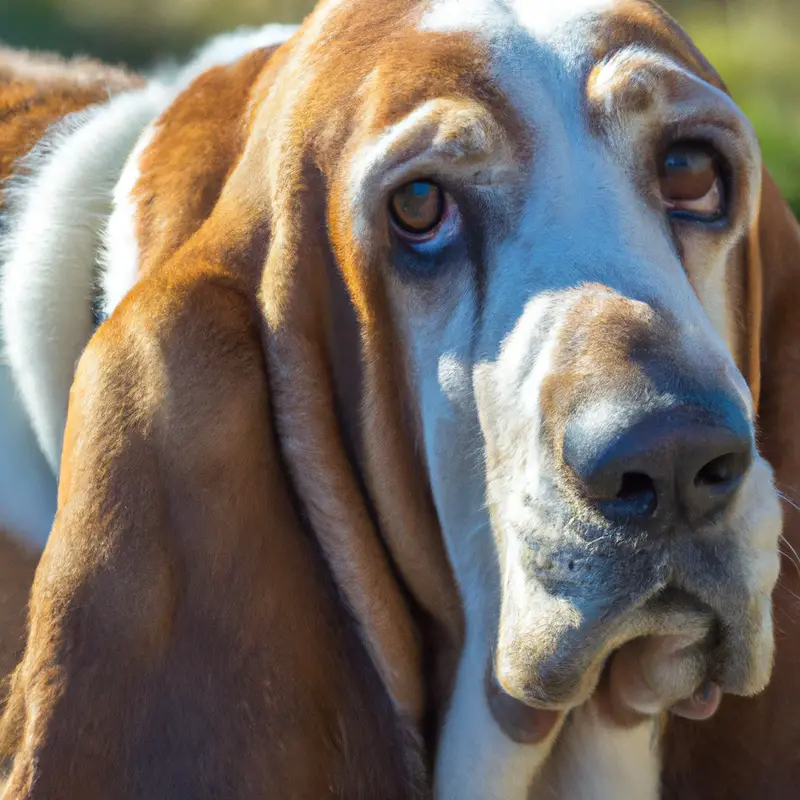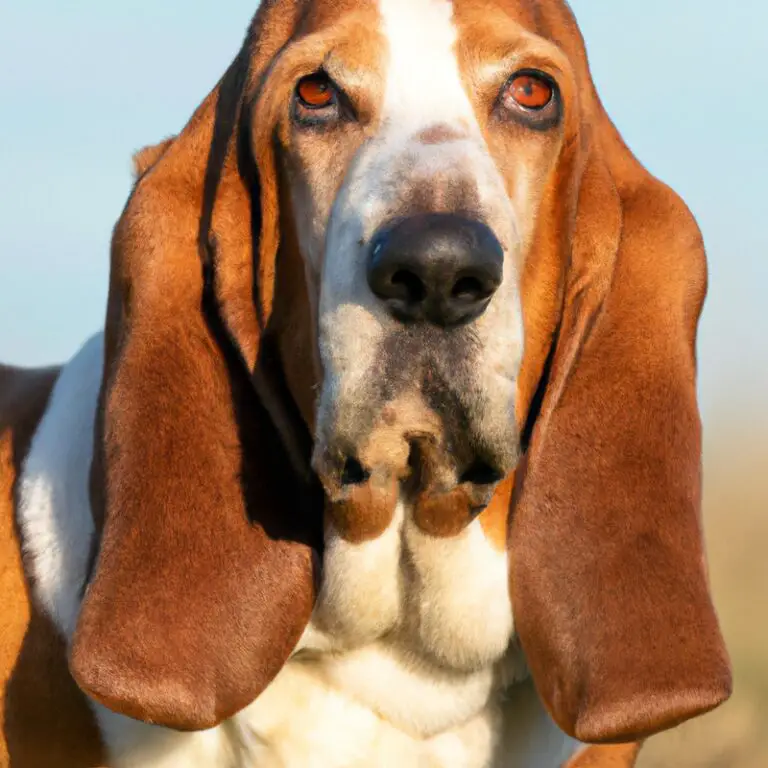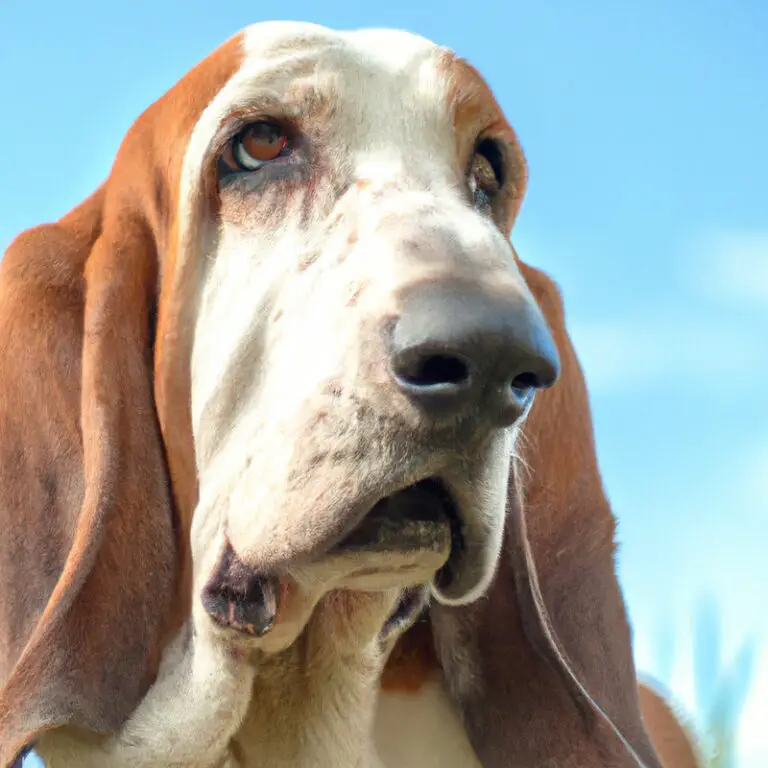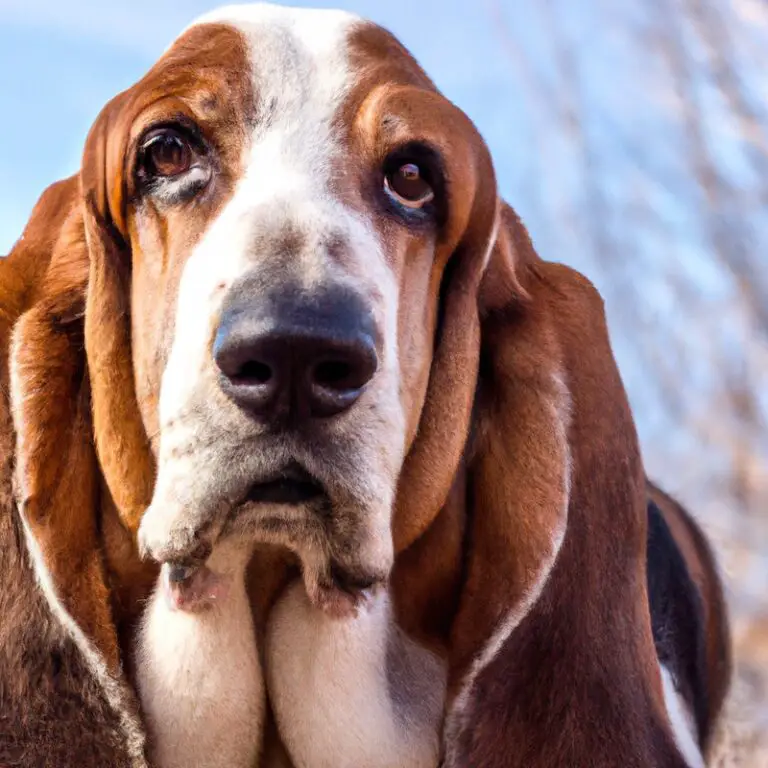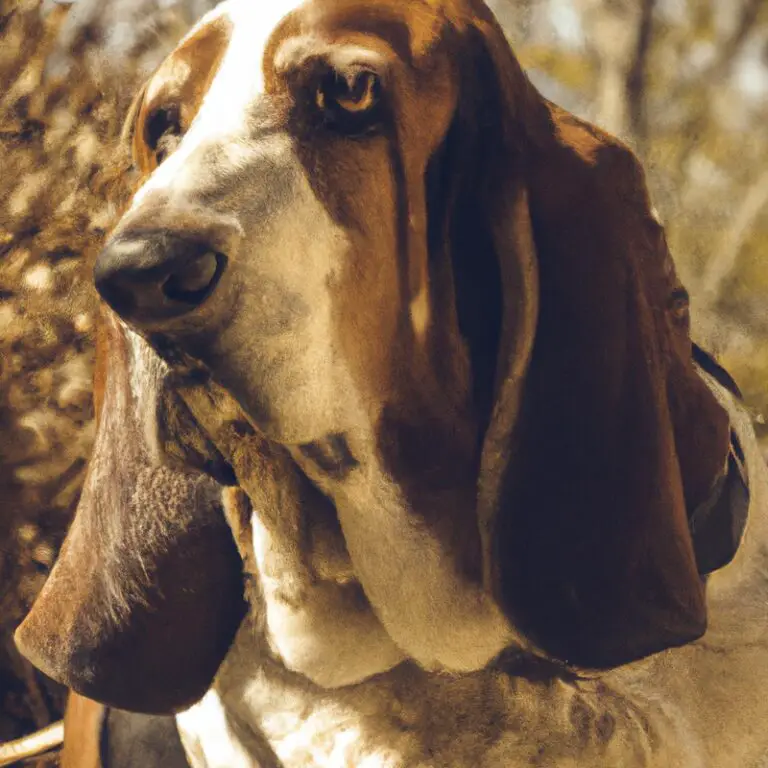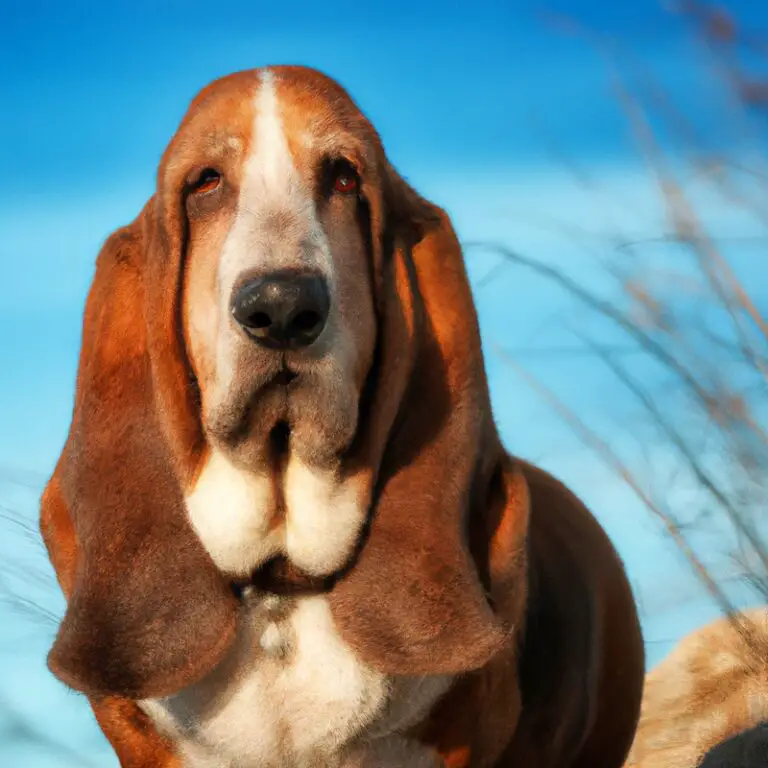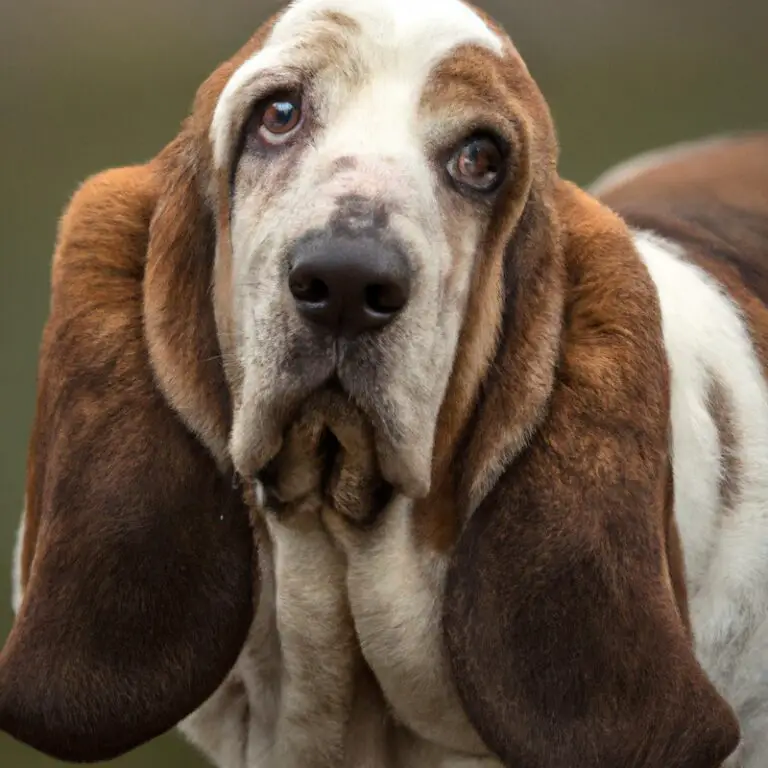How Do Basset Hounds Behave Around Unfamiliar Farm Animals?
Key Takeaways:
- Basset Hounds tend to display calm and non-aggressive behavior around unfamiliar farm animals.
- They generally show curiosity and interest, but may not actively engage with the animals.
- Basset Hounds’ hunting instincts may be triggered around farm animals, so supervision is necessary.
- Proper socialization from a young age can help Basset Hounds positively interact with farm animals.
Imagine the majestic sight of a Basset Hound, with its droopy ears and soulful eyes, exploring a farm bustling with unfamiliar animals. But how exactly do these lovable dogs behave in such situations?
As an expert in canine behavior, I can tell you that understanding the traits and instincts of Basset Hounds is key to comprehending their behavior around farm animals.
In this article, we’ll delve into the natural instincts of these hounds, explore effective ways to introduce them to farm animals, and provide tips for managing their behavior. So, let’s embark on an exciting journey into the world of Basset Hounds and farm animals!
| Behavior | |
| Basset Hounds | |
| Reactivity | Gentle and relatively laid-back |
| Prey Drive | Low to moderate |
| Tendency to chase | Mild, but can be deterred |
| Socialization | May require gradual introduction |
| Trainability | Responsive to positive reinforcement training |
| Guarding Instinct | Generally low |
Understanding the Behavior of Basset Hounds
Key Characteristics of Basset Hounds
Basset Hounds are known for their unique characteristics.
Firstly, they have a distinctive physical appearance with their short legs, droopy ears, and wrinkled face.
Secondly, they are a scent hound breed, meaning they have an excellent sense of smell and love to follow scents.
Thirdly, Basset Hounds are known for their friendly and easygoing nature, making them great companions.
They are also generally good with children and other pets.
Lastly, Basset Hounds have a tendency to be stubborn, so consistent and patient training is important.
Factors Affecting a Basset Hound’s Behavior
Several factors can influence a Basset Hound’s behavior.
First, genetics plays a role in temperament and certain behavioral traits.
Second, early socialization and training are essential for shaping their behavior around people and other animals.
Third, the environment they grow up in, including their living conditions and daily routines, can impact their behavior.
Fourth, proper exercise and mental stimulation are crucial for preventing behavioral issues.
Lastly, the owner’s handling, consistency, and positive reinforcement training techniques greatly influence a Basset Hound’s behavior.
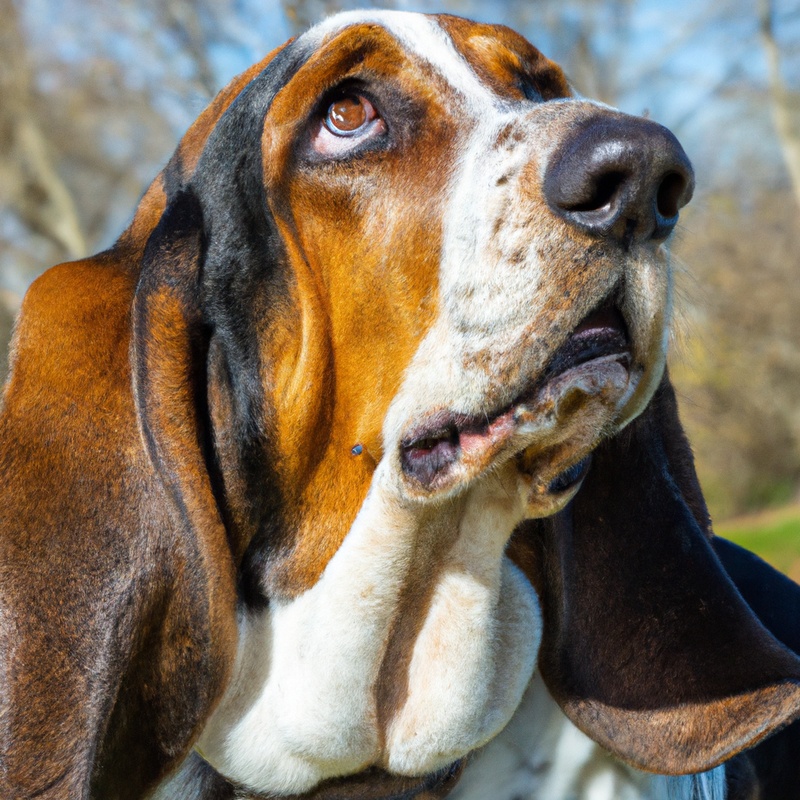
Basset Hounds and Farm Animals
Basset Hound’s Natural Instincts
Basset Hounds have natural instincts that can affect their behavior around farm animals. They are scent hounds, which means they have a strong sense of smell and tend to follow scents.
This instinct can make them curious and eager to explore, which may lead to chasing behavior around farm animals.
Bassets also have a hunting instinct, so they may show interest in smaller farm animals like chickens or rabbits. It’s important to understand and manage these instincts when introducing Basset Hounds to unfamiliar farm animals.
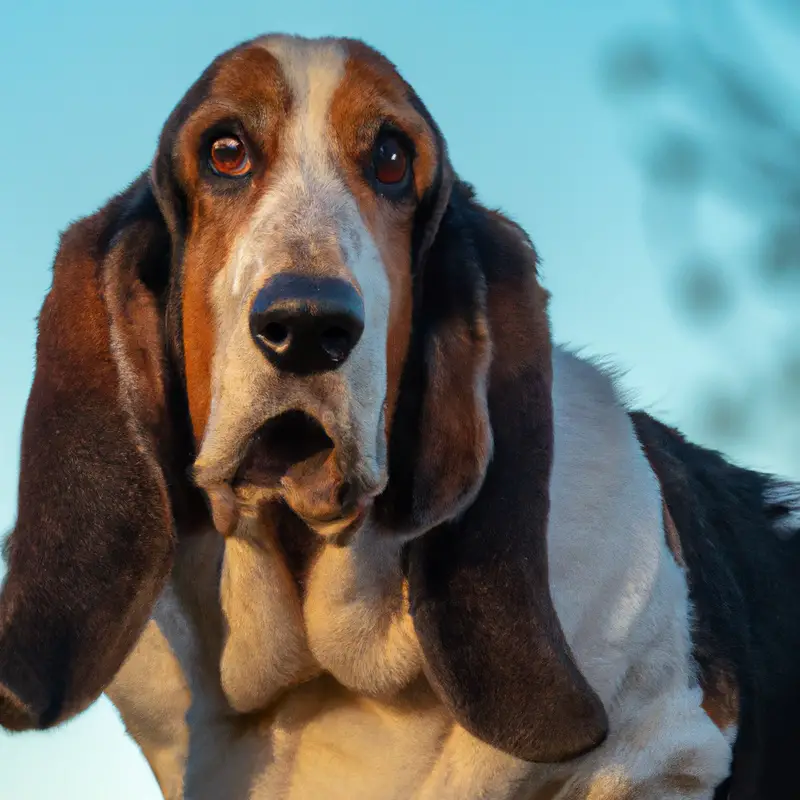
Introducing Basset Hounds to Farm Animals
Introducing Basset Hounds to farm animals requires a gradual approach. Start by allowing them to observe the animals from a distance to get familiar with their presence.
Ensure your Basset Hound is on a leash for safety.
Use positive reinforcement to reward calm behavior around the animals. Slowly decrease the distance between them to allow for closer interactions.
Always supervise the interactions and be ready to intervene if needed.
With time and consistent socialization, Basset Hounds can learn to coexist peacefully with farm animals.
Socializing Basset Hounds with Farm Animals
Socializing Basset Hounds with farm animals can be a gradual process that requires patience and positive reinforcement.
It’s important to introduce them to the animals slowly and under supervision.
Start with short periods of supervised interaction, gradually increasing the time as they become more comfortable.
Always reward good behavior and redirect any chasing or aggressive tendencies.
Consistency is key to help them understand boundaries and develop a positive relationship with the farm animals.
Remember to always prioritize the safety of both the Basset Hound and the farm animals.
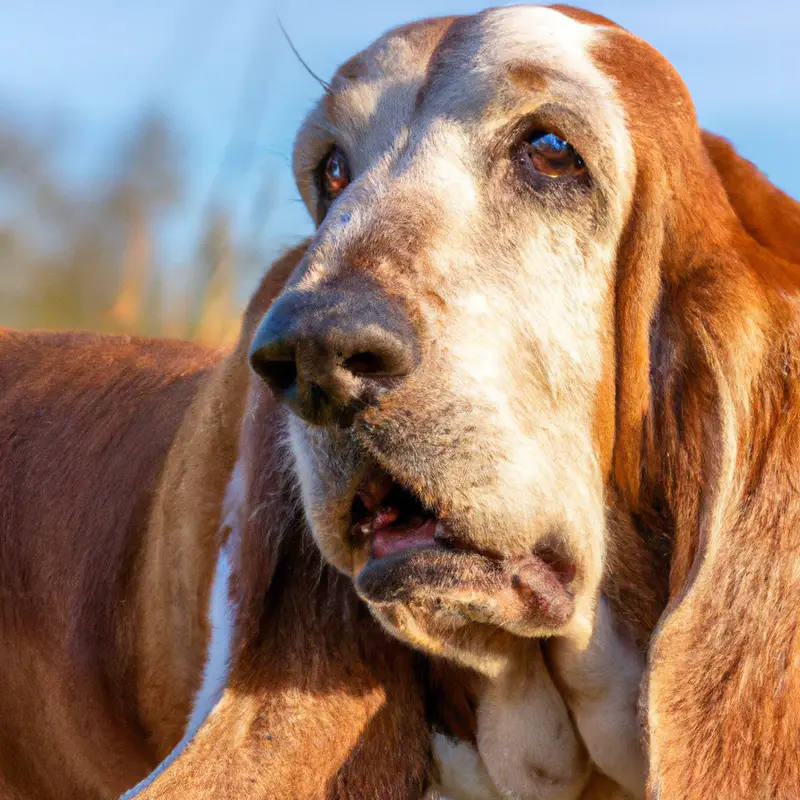
Tips for Managing Basset Hounds around Farm Animals
Supervision and Leash Training
Supervision is key when managing Basset Hounds around farm animals. Always keep a close eye on your dog to ensure their safety and the safety of the animals.
Leash training is also important, as it allows you to have control over your dog’s movements.
Use a sturdy leash and practice walking your Basset Hound around the farm, gradually introducing them to the animals. This helps prevent any unwanted chasing or confrontations.
Remember, consistent supervision and proper leash training are essential for a harmonious interaction between your Basset Hound and farm animals.
Positive Reinforcement Training Techniques
Positive reinforcement training techniques are highly effective when it comes to training Basset Hounds around farm animals.
By using rewards such as treats, praise, and playtime, you can encourage desired behaviors and discourage unwanted ones.
Some techniques include clicker training, where a click sound is made to mark the desired behavior, and then followed by a reward.
Another technique is shaping, where you break down the desired behavior into smaller steps and reward each step.
Remember, consistency and patience are key when using positive reinforcement training with Basset Hounds.
Gradual Exposure and Reinforcement
Gradual exposure and reinforcement are key when introducing Basset Hounds to unfamiliar farm animals.
Start by allowing controlled interactions in a safe and controlled environment.
This can help your Basset Hound become accustomed to the sights, sounds, and smells of the animals.
Reinforce positive behavior with treats and praise.
As your dog becomes more comfortable, gradually increase the exposure and level of interaction.
This will help build trust and reduce any potential anxiety or aggression.
Remember to always supervise and ensure the safety of both your dog and the farm animals.
Potential Challenges and Solutions
Prey Drive and Chasing Behavior
Prey drive and chasing behavior are natural instincts for Basset Hounds.
They have been bred to hunt and track scents, so it’s no surprise that they may be easily tempted to chase farm animals.
When a Basset Hound sees a running animal, their instinct is to give chase.
This behavior can be challenging to manage, especially around farm animals.
It’s important to train and socialize your Basset Hound to redirect their prey drive and discourage chasing behavior.
Keep them on a leash around farm animals and provide positive reinforcement to teach them appropriate behavior.
Aggression towards Farm Animals
Basset Hounds may display aggression towards farm animals due to their hunting instincts and natural prey drive. It’s important to remember that each dog is different, so not all Basset Hounds will exhibit this behavior.
To manage aggression towards farm animals, supervision and leash training are crucial.
Positive reinforcement training techniques can also help in redirecting their focus and teaching them appropriate behavior. Gradual exposure and reinforcement can aid in desensitizing them to the presence of farm animals.
It’s important to consult with a professional trainer for personalized guidance.
Training Basset Hounds to Respect Boundaries
Training Basset Hounds to respect boundaries is essential when it comes to their behavior around unfamiliar farm animals. One effective method is to use positive reinforcement techniques like rewards and praise to encourage good behavior.
Additionally, consistent and proper leash training can help establish boundaries and prevent the Basset Hound from straying too far.
Gradual exposure to farm animals, with supervision, allows the dog to become familiar and comfortable with their presence. It’s important to be patient and consistent in the training process to ensure the Basset Hound learns to respect boundaries.
Final Verdict
Based on my expertise and experience, Basset Hounds can behave differently around unfamiliar farm animals. Their key characteristics, such as their scent hound instincts and laid-back temperament, play a significant role in their behavior.
To manage Basset Hounds around farm animals, it is crucial to introduce them gradually, socialize them properly, and provide consistent supervision.
Positive reinforcement and leash training techniques can also be effective. However, it’s important to acknowledge potential challenges, such as prey drive and aggression, and address them through training and establishing boundaries.
By understanding these factors and implementing appropriate strategies, Basset Hound owners can ensure a harmonious relationship between their pets and farm animals.

